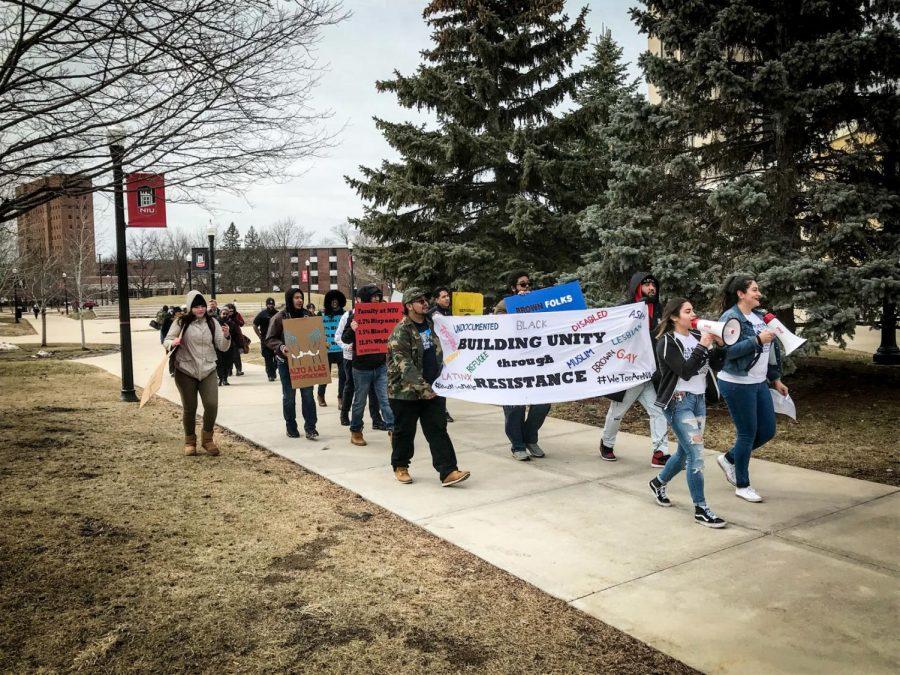Students ask for diverse faculty
Members of the Latino Student Alliance and DREAM Action NIU march from MLK Commons toward Wirtz Hall Thursday.
February 26, 2018
DeKALB — About 25 students from Latino Student Alliance and Dream Action NIU gathered to rally for better representation on campus.
The students said they want a higher concentration of non-white faculty on campus; Hispanics and African-Americans make up 31 percent of the university’s student body, but they make up about 5 percent of the faculty and staff population, according to the 2016-2017 NIU Data Book.
“Never have I ever had a teacher at this school who is the same color as me,” said Alicia Gonzalez, president of the Latino Student Alliance.
Hispanics make up 2 percent of the university’s faculty, and African-Americans represent 3 percent, according to the 2016-2017 NIU Data Book. Non-Hispanic caucasians account for 72 percent of university staff.
The Illinois Board of Higher Education has made it a point of emphasis to create diversity within the state’s academic system by creating a best practice guideline that suggests universities should have 5 percent of their faculty be African-American and 3 percent be Hispanic, according to its webpage.
“Student population and the faculty population are out of line,” said Judy Ledgerwood, acting Dean of the College of Liberal Arts and Sciences. “We all can have implicit bias.”
The crowd marched from MLK Commons toward Wirtz Hall and back to Founders Memorial Library.
As the march continued, passers-by stopped to observe, a few joining in. An onlooker yelled in approval from across the Commons, holding up a fist in solidarity.
Those who took part in the rally also chanted support of other social justice causes with slogans like, “Education, not deportation” and “Say it loud, say it clear, refugees are welcome here.”
Gonzalez said the rally was organized to show unity between students of color on campus and to shed light on their under-representation.
“One of the biggest problems on campus is the lack of funding and resources offered to students of color,” Gonzalez said. “We make up a large enough number of the student population.”
Erin Hernandez, senior political science major, spoke center stage after the march to urge students to vote in the March 20 primary elections.
“After the recent election, I know it feels like your vote doesn’t matter, but it does, especially if we’re selecting members of Congress that are voting on future legislation,” Hernandez said. “That will affect the rest of our lives. We need to wake up and pay attention to what is going on in our backyard,” Hernandez said.
Karlos Lugo, senior non-profit organizational studies major, said education has been emphasized as important, but the system feels rigged for education to be emotionally and physically exhausting for minority groups.
“We have to come together, our communities, to share our struggle,” Lugo said.







